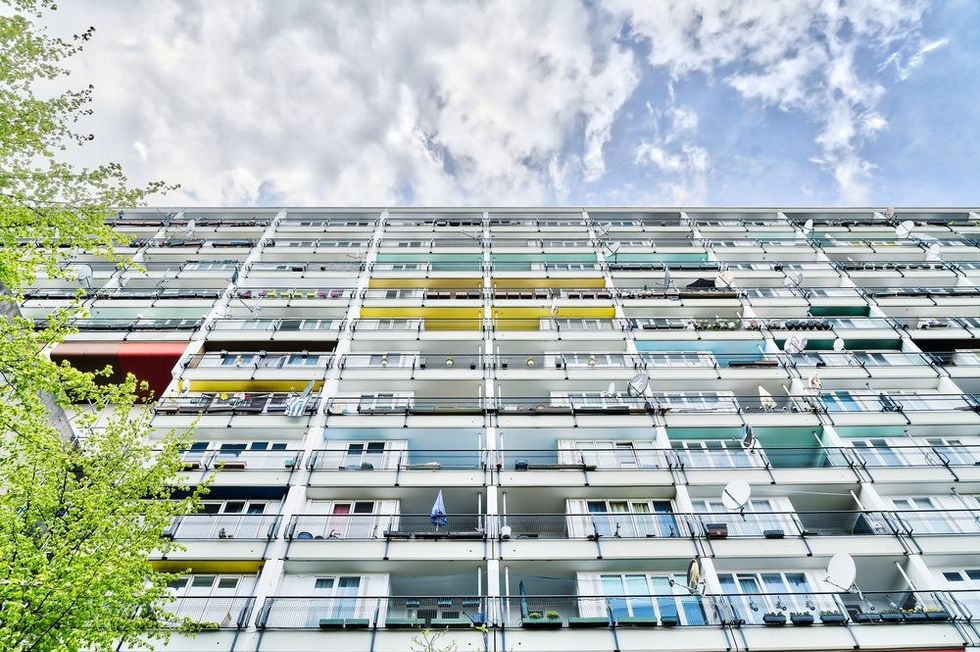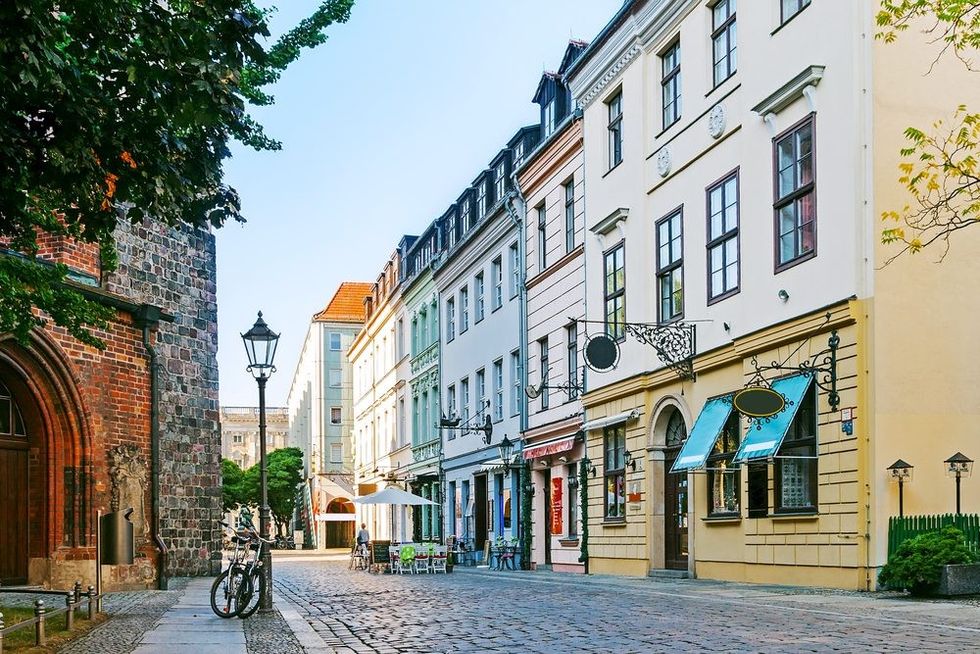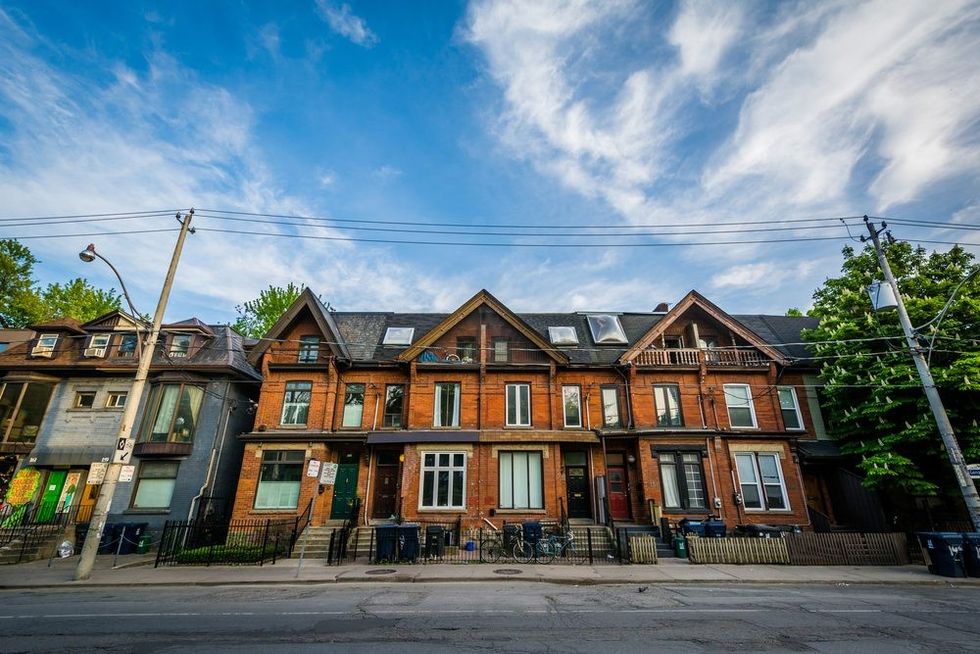On September 26, Berliners approved a bold plan intended to curb rising rents in the German capital. Supporters consider it a template for other cities looking to achieve affordable housing. Critics, however, say it’s misguided and unconstitutional.
In any case, renters and developers in Canadian cities should be paying attention should the revolution ever make its way to local soil.
What Happened, Exactly?
Since 2018, a grassroots movement has been pushing for the city of Berlin to resocialize residential real estate. That is, to transfer housing from private to public hands. Under the initiative, called Expropriate Deutsche Wohnen & Co, companies holding 3,000 apartments or more would be forced to sell them to the government. The city would then be expected to charge less rent than the previous owners. In total, 240,000 apartments, or 11% of all apartments in Berlin, would fall under the provision. A petition earlier this year gathered 350,000 signatures in support of the initiative, which qualified it as a referendum in September’s city-state election. In that vreferendumote, more than a million Berliners voted ‘ja’ – a 56.4% majority. Now the local government must decide how to deal with the verdict.
Why is Rent Such an Important Issue in Berlin?

While most European capitals gentrified rapidly through the 1960s, the Cold War shielded Berlin from private capital for another 30 years. Even after the Wall fell, money trickled in slowly. In 2003, Berlin’s mayor famously declared the city “poor but sexy.” Sexiness, of course, is prone to commodification. First comes cool, then comes commerce. The squats fell, the cranes came, and now parts of the former Berlin wall are condos. What was once called “housing” became increasingly known as real estate. Speculators had finally arrived in Berlin, a city where 85% of residents rent rather than own. As Alexander Vasudevan wrote in The Guardian, “...the transformation of the housing market was accompanied by skyrocketing rents, widespread displacement and the dismantling of local communities and social bonds. Many neighbourhoods were rapidly gentrified while low-income residents struggled to find decent affordable housing.”
READ: Toronto’s ‘Vital Signs’ Report Highlights a Grim Reality on the Housing Front
Not unique to Berlin, but new. Frustrated that rents in the city had doubled in a decade, many Berliners see expropriation as the most politically viable way to put people over profit – to take back their city from forces literally and figuratively foreign to the city they grew up in.
Does the Local Government Have Any Obligation to Act on the Referendum’s Outcome?

Technically, no. Not yet, anyway. As it stands, there is no legal obligation for the Berlin government to start buying apartments, or for corporate landlords to forfeit their assets. Nevertheless, newly elected mayor Franziska Giffey is in a perilous position. Having previously opposed housing resocialization, she said she “respects” the people’s decision. Probably, she and her party are hoping for Germany’s top court to dismiss the whole thing as unconstitutional, as was the case when Berlin’s controversial five-year rent-freeze was overturned, one year into the experiment, this April. This time, it’ll depend on how lawmakers interpret Article 15 of German Basic Law, which has never been used before and maintains that “land, natural resources and means of production may, for the purpose of nationalisation, be transferred to public ownership or other forms of public enterprise by a law that determines the nature and extent of compensation.”
What Are the Challenges?

Consider compensation: One legal scholar estimates the city will need to pay up to 40 billion euros ($65 billion CAD) for Berlin’s corporate-owned apartments. The government believes they can do it for a quarter of that price. Who determines the market value? What if it’s on the high end? The local government will spend tens of billions of euros without adding a single new apartment to the city’s devastatingly short supply. And so we arrive at perhaps the most perplexing conundrum: how to tackle affordability and scarcity simultaneously. Because it’s not just that housing is becoming unaffordable, it’s also that it doesn’t exist. How bad is it? Two years ago, an apartment viewing drew nearly 1,800 desperate tenants.
It’s clear there’s a crisis, but who’s to say the city is equipped to solve it? Berlin’s government is ridiculed nationwide for its mismanagement and incompetence, from the airport fiasco to pretty much creating the situation its residents are now demanding it fix. As the Washington Post notes, “Much of the anger has been directed at large property companies and international investment groups that have bought up rental units across Berlin, partly by buying apartments once owned by the city but sold off during a period of financial distress in the 2000s.”
Here’s one skeptic’s take: “It will never be enacted, it will be tied up in legal challenges for years, and any price that becomes legally possible will be beyond the state. Meanwhile, investment in new buildings will plummet and the supply shortage will get worse.”
Is it Possible for Something Similar to Happen in Canada?

Canada’s major cities have their own housing issues, including affordability to supply. To what extent can the referendum in Berlin inspire hope for renters in, say, Toronto or Vancouver? The answer probably lies somewhere between “too early to tell” and “not much.” Remember, the referendum is non-binding. It still needs to be drafted into a bill, likely with concessions. Then it will be challenged in court. Should it pass, the experiment begins. If it fails, there’s no point hypothesizing how it might be applied in Canada. If it succeeds, it’s difficult to imagine any sort of path to success.
The ownership rate in Toronto and Vancouver, for example – 67% and 64%, respectively – is much higher than Berlin’s 15%. So, in both cities the majority of residents have no incentive to see rents decrease. In fact, they’d probably wish for the opposite since around a third of Toronto condos are investor-owned; in Vancouver, about half. And, unlike in Berlin, the investors are predominantly individuals. Expropriating hundreds of thousands of apartments from corporations is one thing, but people? Plus, new apartments are being built like crazy. If Canadian cities were interested in providing affordable housing, it would make more sense to subsidize and rent-control new developments. Come to think of it, that sounds like a pretty great plan for Berlin...
Is There a Win Here?

The big victory is for collective action – that an inspired citizenry can hold elected officials accountable to the public interest in a direct, specific way. Beyond weighing the merits of expropriation in particular or the benefits of socialism and capitalism in general, there is at least some sense here that the powers-that-be can be forced to consider housing a human right more so than if no one had made a fuss about.
The initiative is also a great example of how to transcend the bind of party politics. On the same day Berliners voted for expropriation, they also voted in a government that opposed it. While that may seem like a paradox, it’s plausible that those who voted for a conservative (by German standards) local government may not toe the party line on this particular issue. After all, affordable housing should be a nonpartisan issue. A referendum is a rare opportunity for people of all political affiliations to demand action on a single issue without having to “switch sides” and compromise on other core beliefs. That said, it might be tough to convince Canadians that cooperative ownership of a public good won’t signal a swift spiral towards all-out communism.
But perhaps Canadians can learn to be constructively confrontational when it comes to important issues in their cities. Berliners have shown that it can work, and not just this past September. In 2014, residents vetoed selling to developers a parcel of the decommissioned Tempelhof airport, which had become probably the greatest public park in the world. That, of course, meant a rejection of building more places to live at a time Berliners were already beginning to feel the stresses of a housing shortage.
And so we arrive again at the ancient issue of supply and demand, which few (if any) governments have managed to competently regulate and, when left to the free market, will always favour the wealthy.
Expropriation is not an ideal solution -- but any attempt to curb the reckless financialization of housing is at the very least a positive development.






















